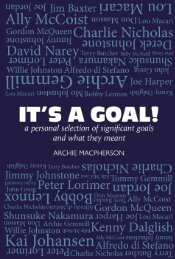Irish Unity by Ben Collins sampler
Irish Unity is the first book to explore Irish reunification in the aftermath of Brexit which is written by Ben Collins who comes from a pro-British and Unionist background and has lived and worked across the UK. In this book Collins explains how he has come to favour Irish Unity. He uses his twenty years of experience working in political communications to give his insight on the current situation regarding the building momentum for Irish Unity, the importance of the Good Friday Agreement and Brexit. In this book he sets out what it would take to win a Border Poll referendum and the importance of preparation in advance. Inspired by the momentum of the Scottish referendum and taking lessons from elsewhere, Ben Collins guides the reader through the steps needed from both sides that he believes will unite Ireland. Collins gives deep insight from a Northern Ireland perspective about how the financial, cultural and social ramifications could pan out for citizens in both parts of Ireland and how it would affect the United Kingdom, Europe and the world.
Irish Unity is the first book to explore Irish reunification in the aftermath of Brexit which is written by Ben Collins who comes from a pro-British and Unionist background and has lived and worked across the UK. In this book Collins explains how he has come to favour Irish Unity. He uses his twenty years of experience working in political communications to give his insight on the current situation regarding the building momentum for Irish Unity, the importance of the Good Friday Agreement and Brexit. In this book he sets out what it would take to win a Border Poll referendum and the importance of preparation in advance.
Inspired by the momentum of the Scottish referendum and taking lessons from elsewhere, Ben Collins guides the reader through the steps needed from both sides that he believes will unite Ireland.
Collins gives deep insight from a Northern Ireland perspective about how the financial, cultural and social ramifications could pan out for citizens in both parts of Ireland and how it would affect the United Kingdom, Europe and the world.
You also want an ePaper? Increase the reach of your titles
YUMPU automatically turns print PDFs into web optimized ePapers that Google loves.
preface<br />
Back in Northern Ireland, I joined Alliance after being asked to<br />
do some leafleting for them in the run- up to the 2011 Assembly elections.<br />
I was briefly on their Executive Committee and also a member<br />
of the Liberal Democrats, as I knew they were a stabilising force in<br />
the coalition government, blocking the more extreme Conservative<br />
tendencies. But when I started a new job in 2017 as Chief Executive<br />
of NIFHA (Northern Ireland Federation of Housing Associations),<br />
I had to resign from both parties, to ensure that the organisation<br />
maintained its status as being politically impartial.<br />
I realised that I was in danger of becoming one of those people<br />
for whom I always had disdain – somebody who moved around<br />
multiple political parties. But in my defence, I did it for the right reasons.<br />
My views have been consistent – my belief in the Good Friday<br />
Agreement, socially liberal values and the benefits of being part of<br />
the European Union have always remained the same, so I have made<br />
judgments about which political parties are the best vehicle for me<br />
to pursue my beliefs. I am not willing to change my views just to stay<br />
within a political party.<br />
At the time of the Good Friday Agreement, the British and <strong>Irish</strong><br />
governments were joint custodians and, from a Northern Ireland<br />
perspective, this provided assurances for all parts of the community.<br />
However, the detrimental Brexit vote has fundamentally changed<br />
this. I had a long- term aspiration for <strong>Irish</strong> unity since the Good Friday<br />
Agreement, but it became an urgent necessity for me after the<br />
vote for Brexit. I recognise that some voted for Brexit who once<br />
believed – perhaps even still do – that the UK leaving the EU is a good<br />
thing. While I respect their opinions, I do not share that view.<br />
The realities of Brexit are becoming clear and the increased friction<br />
in trade from Britain to Northern Ireland is causing problems –<br />
the loyalist violence that occurred at the time of the introduction of<br />
the Northern Ireland Protocol being just one example. The regional<br />
government in Northern Ireland has not fully operated since February<br />
2022, as the DUP resigned the position of first minister in protest<br />
of the Protocol. As a result, only limited decisions can be made, the<br />
Northern Ireland Assembly is not functioning and there can be no<br />
Northern Ireland budget. The people of Northern Ireland are being<br />
used as a bargaining chip <strong>by</strong> the DUP during a cost- of- living crisis<br />
and when our health service needs urgent investment.<br />
Looking at the island of Ireland through the prism of Brexit,<br />
living through a pandemic and the global reset and ‘new normal’<br />
25


















